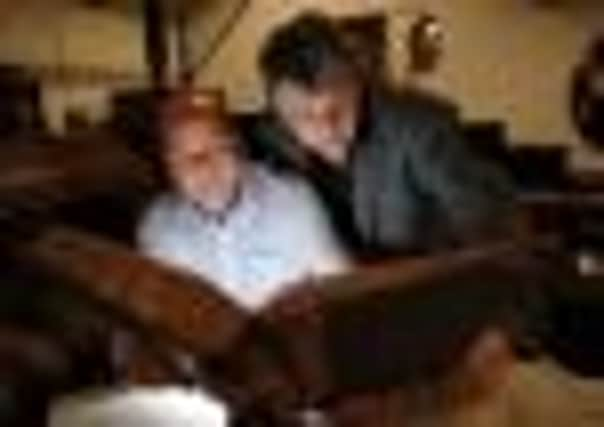A discovery to Relish as saucy secrets revealed


Items he has rescued from the bulldozer include an antique chamber pot, a statue of a bandmaster, an old hand-pumped fire extinguisher and numerous old bottles and fancy jars.
He could never understand why younger demolition colleagues ignored the history at their feet and, in some cases, took a hammer to old objects.
Advertisement
Hide AdAdvertisement
Hide AdMr Senior’s desire to preserve the past served him well when he discovered a hoard of secret papers hidden in the roof space of an old factory at Apperley Bridge, near Bradford, once occupied by Hammonds sauce company.


Fifty feet up and carefully concealed by straw and stones, he found a metal box containing more than 100 documents relating to the history of the once-famous Leeds firm Goodall, Backhouse & Company.
There were hand-written recipes for company top sellers, including Yorkshire Relish, which once sold several million bottles a year across the British Empire and beyond.
“The box was well hidden and might have been lost forever had I not noticed the oak beams and decided to take them out,” said Mr Senior.
Advertisement
Hide AdAdvertisement
Hide AdHe describes the contents as “the best find I have had in 20 years” and Leeds historians are equally excited because there are so many gaps in what is known about the company, its founders and workers.


The first document he pulled from the box was the will of a factory boss, William Powell, who left a fortune of £150,000 when he died in 1900.
Among the documents which detail Powell’s lavish lifestyle were receipts for oysters, boxes of cigars, bottles of port and cases of champagne.
But the most interesting finds were the recipes, which would have been the lifeblood of the company.
Advertisement
Hide AdAdvertisement
Hide AdThe papers are now in the hands of Leeds auctioneer Gary Don, who says the historical value is great, although the monetary value may be more modest.


“The most important things here are the recipes,” he says.
“They were well hidden and would have been top secret documents. I would imagine lots of companies would have wanted to get their hands on them.”
The success of the Yorkshire Relish brand in Victorian times led the Leeds company to take legal action against copycat competitors and forced several companies to apologise.
Some of the letters of apologies and court documents are among the pile due for auction.
Advertisement
Hide AdAdvertisement
Hide AdThe court action in the 1880s went as high as the House of Lords, lasted several years and the ruling in favour of the Leeds company is said to be sometimes cited in modern trademark disputes.
Neither Mr Don nor Mr Senior have tasted Yorkshire Relish and attempting to follow the newly-discovered recipe might be tricky as the ingredients and handwriting are hard to follow.
But Mr Don believes it tasted something like Worcestershire sauce and might have had a spicier kick to it judging by some of the ingredients.
Mr Senior, 52, who lives at Heckmondwike, is looking forward to the batch of documents going under the hammer on May 24.
Advertisement
Hide AdAdvertisement
Hide AdHe hopes they end up in the Leeds archives for the public to view.
And Gary Don thinks they ought to remain in Leeds.
“It would be a shame if they didn’t end up as part of the Leeds archives. They are part of our history and the company supplied an awful lot of work to local people. I am sure there will be a tremendous amount of interest in them.”
Assistant curator of Leeds Abbey House Museum Nicola Pullan said: “Information about this company is sketchy, that’s why these papers are so interesting. The company was a massive part of Leeds.”